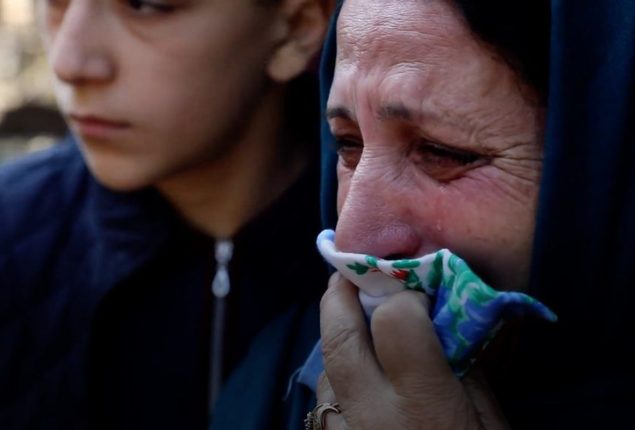
Azerbaijan Secures Disarmament of Karabakh Forces
- Ethnic-Armenian forces in Nagorno-Karabakh accept Russian-proposed ceasefire after Azerbaijan’s offensive.
- The key term in ceasefire is complete disarmament.
- Nagorno-Karabakh recognized as part of Azerbaijan, houses 120,000 ethnic Armenians.
Ethnic-Armenian forces in Nagorno-Karabakh have agreed to a ceasefire proposed by Russia, following Azerbaijan’s military offensive in the region, which started 24 hours earlier.
One of the significant terms accepted by Karabakh forces is complete disarmament.
Nagorno-Karabakh, internationally recognized as part of Azerbaijan, is home to around 120,000 ethnic Armenians.
Three years ago, Azerbaijan regained control of areas in and around Karabakh and now, they have demanded a full surrender from the Karabakh forces.
Karabakh officials report 32 fatalities and 200 injuries since Azerbaijan’s military operations began, claiming them to be “anti-terror” actions.
Azerbaijan’s presidency has announced that talks will occur with Karabakh’s Armenian representatives in the Azerbaijani town of Yevlakh on Thursday, focusing on “re-integration” matters.
Yevlakh is located approximately 100km north of Karabakh’s regional capital, Khankendi (known as Stepanakert to Armenians).
The enclave’s leaders stated that Russian peacekeepers mediated an agreement for a complete cessation of hostilities, effective at 13:00 local time (09:00 GMT).
However, there were still audible explosions in the regional capital shortly after the ceasefire took effect. Karabakh officials urged residents to remain in shelters and avoid leaving.
According to the ceasefire terms, local Karabakh forces commit to complete disarmament and disbandment, with an additional commitment for Armenian forces to withdraw, despite Yerevan’s denial of military presence in the area.
Armenian Prime Minister Nikol Pashinyan emphasized that his government was not involved in crafting the ceasefire agreement, placing full responsibility for the safety of the local population on Russian peacekeepers.
On Tuesday, he accused Azerbaijan of engaging in “ethnic cleansing” in Karabakh.
Armenia and its neighboring Azerbaijan have fought two wars over Nagorno-Karabakh since the dissolution of the Soviet Union.
The 2020 conflict lasted six weeks, resulting in several thousand casualties and enabling Azerbaijan, with Turkish support, to regain control of territory around and within the enclave.
Over the past nine months, Azerbaijan has imposed an effective blockade on the only road into Karabakh from Armenia, known as the Lachin Corridor.
Ethnic Armenians in the region have faced shortages of essential supplies, including food, medicine, and toiletries.
Though 2,000 Russian peacekeepers were tasked with monitoring the ceasefire, Russia’s focus on Armenia has diminished due to its involvement in the Ukraine conflict, despite Armenia’s membership in Russia’s CSTO military alliance.
Last May, the Armenian prime minister suggested that Armenia would consider recognizing Karabakh as part of Azerbaijan in exchange for the safety of the ethnic Armenian population.
He referred to Azerbaijan’s entire territory, including Nagorno-Karabakh, which covers 86,600 sq km.
Russia has also expressed displeasure with Pashinyan’s apparent shift towards the West. This week, Armenian troops conducted joint military exercises with the US military.
The Kremlin has denied allegations by Armenia that it did not provide sufficient support to its ally.
Amidst the crisis, hundreds of protesters in Yerevan called for the prime minister’s resignation on Tuesday, while he cautioned against unidentified forces plotting a coup.
Read More News On
Catch all the World News, Breaking News Event and Latest News Updates on The BOL News
Download The BOL News App to get the Daily News Update & Follow us on Google News.




